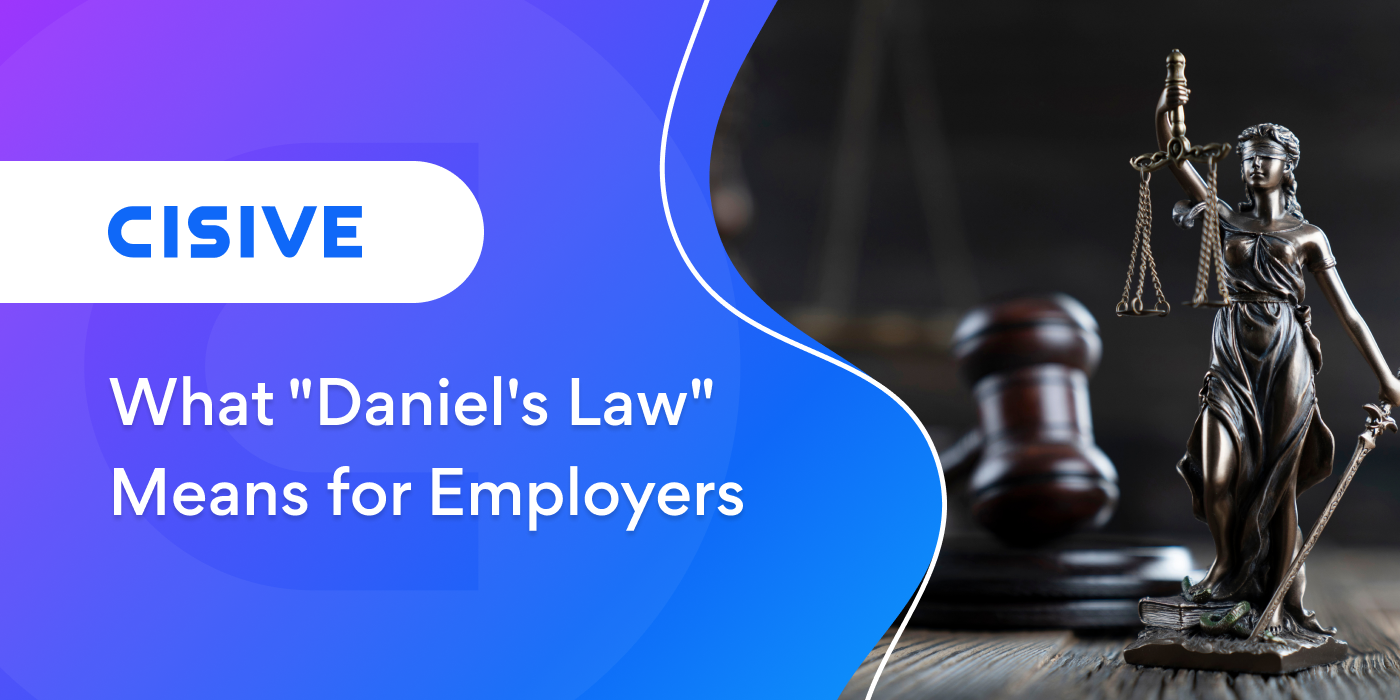Cisive has been tracking a noticeable shift in the laws that have traditionally guided and regulated our operational space as a consumer reporting agency (CRA) away from the broad application of the federal laws, in favor of what can often be highly nuanced state and local laws. Since the start of 2025, there has been sweeping reform reducing the federal regulatory apparatus, either by executive orders or the judiciary, as reflected in decisions that, for now, appear to refute any notion of federal preemption.
Industry experts agree that this trend is likely to continue to shape our practices for the near future. And while many would argue that less federal oversight is more favorable, this is not always true, particularly from the operational standpoint of a nationwide CRA. Rather than servicing background screening needs under one standard (the Fair Credit Reporting Act, or FCRA), we may need to accommodate different standards from 50 states and 90,000+ local governments.
Daniel’s Law
The very first “Daniel’s Law” enacted was in the state of New Jersey, in response to the tragic murder of Daniel Anderl, the son of Esther Salas (a United States Judge in the US District Court of New Jersey) and Mark Anderl. On July 19, 2020, an assailant targeted Salas’s family at their home. Daniel, aged twenty, opened the door when the assailant knocked. The assailant then opened fire, killing Daniel at the scene. Mark was shot multiple times and left in a critical but stable condition. Salas was not injured in the attack.
These laws prohibit the unauthorized disclosure of residential addresses, telephone numbers, and/or other pieces of identifying information for persons covered by the law (“Covered Persons”) which, in addition to active, former, retired judges and other officers of the court, may also include members of their families.
Similar Laws Enacted
Since early January of 2025, we have seen approximately 20 new laws or amendments similar to New Jersey’s. While not officially referred to as a “Daniel’s Law,” they closely mirror the NJ law, and in some instances, even expand protections beyond judicial officials to include law enforcement officers, probation officers, district attorneys, elected officials, political appointees, and in most cases their family members as well.
The following states have enacted similar laws: Delaware, Florida (2), Illinois, Louisiana, Maine, Missouri, Nevada, New Jersey, North Dakota, Oregon, Rhode Island, South Carolina, Texas (3), Virginia, Wisconsin. These states have passed laws that are currently in effect, or will take effect between now and 2026.
Passage Expected: California, Michigan, Oklahoma, Vermont.
Review Your Policies
Unlike the original “Daniel’s Law” of New Jersey, other states have made it clear that the protections apply when the information is published or released without the prior authorization or consent of the Covered Persons. In general, companies using consumer reports from a CRA like Cisive are required by the FCRA to have written consent prior to running searches, so processing would meet the standard for authorization in these jurisdictions.



